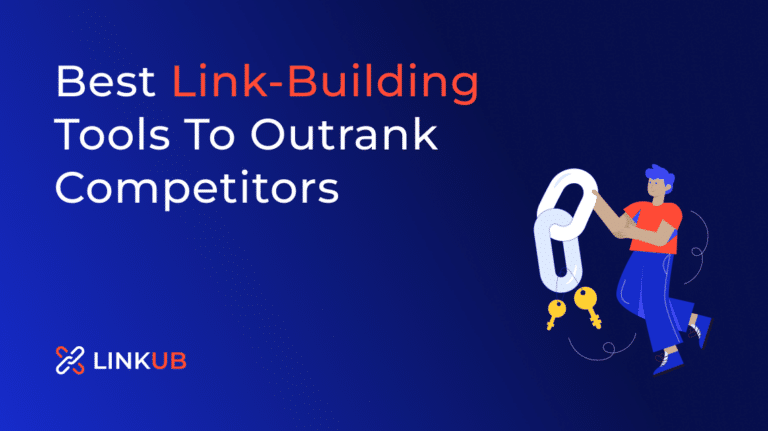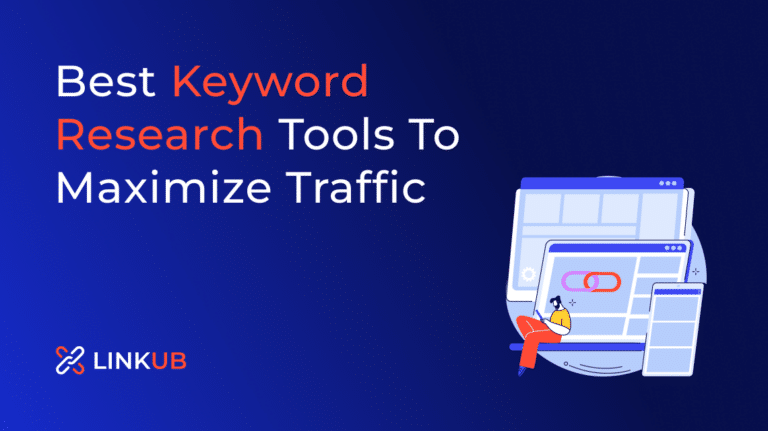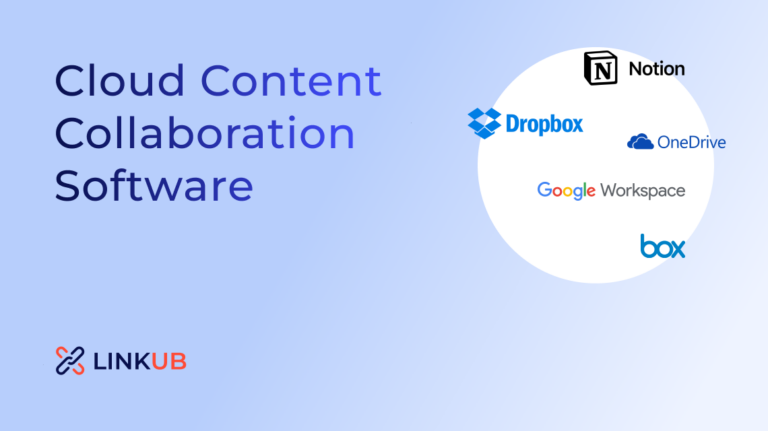10 Best E-Commerce Platforms in 2024
Feeling overwhelmed by the sheer number of e-commerce platforms available?
We get it. With the global e-commerce market projected to reach a whopping $6.3 trillion by 2024, choosing the right platform for your online store is more important than ever.
That’s why we’ve done the heavy lifting for you and compiled a list of the best e-commerce platforms to help you create a stunning and profitable online store. So, without further ado, let’s dive in!
What Is an E-Commerce Platform?
E-commerce platforms are software applications that allow merchants and customers to do business online. E-commerce solutions may handle everything from website hosting, inventory management, payment processing, marketing, and order fulfillment.
Good e-commerce platforms are more than just tools for selling and accepting payments online. Your e-commerce platform must serve as a command center from which you can manage all aspects of your organization. As well as providing you with the ability to handle payments, it should also provide you with all of the necessary tools for selling online, such as your online shop.
Top E-Commerce Software
1.
Shopify is a leading eCommerce platform that enables businesses to easily create and manage online stores. Key benefits include:
- User-friendly: Set up and customize your store without coding or design skills.
- Scalable: Choose from various plans to suit businesses of all sizes and needs.
- App ecosystem: Access a vast library of apps and integrations to enhance store functionality.
- Secure payments: Accept payments from multiple providers with built-in security features.
- 24/7 support: Receive timely assistance via phone, email, or live chat for seamless operations.
Pricing: Paid
Pricing page: https://www.shopify.com/pricing

2.
WooCommerce is a flexible, open-source eCommerce platform built for WordPress, offering customization and scalability. Key benefits include:
- Customizable: Tailor your store with a vast range of themes and plugins.
- Integration with WordPress: Seamlessly integrate with your existing WordPress site.
- Extensive plugins: Access thousands of plugins to expand store functionality.
- Cost-effective: Benefit from a free core platform and choose from various paid extensions.
- Global community: Get support from a large, active community of developers and users.

3.
BigCommerce is a feature-rich eCommerce platform that simplifies online store creation and management for businesses of all sizes. Key benefits include:
- Intuitive interface: Set up and customize your store with a user-friendly dashboard and tools.
- Scalable solutions: Choose from various plans to accommodate business growth and needs.
- Built-in features: Access a range of features like product management, payment gateways, and analytics.
- Wide app selection: Enhance store functionality with various third-party apps and integrations.
- Reliable support: Receive 24/7 support via phone, email, and live chat for seamless operations.
Pricing: Paid
Pricing page: https://www.bigcommerce.com/enterprise-pricing/

Adobe Commerce, formerly Magento, is a powerful, open-source eCommerce platform known for its flexibility and scalability. Key benefits include:
- Customizable: Tailor your store with a vast range of themes and extensions.
- Scalable architecture: Grow your business with a platform designed to accommodate expansion.
- Robust features: Access a comprehensive suite of built-in eCommerce capabilities.
- Integration options: Connect with popular payment gateways, CRMs, and other third-party services.
- Strong community: Benefit from a large, active community of developers and users for support and innovation.
Pricing: Paid
Pricing page: https://business.adobe.com/products/magento/pricing.html

5.
Shopwired is a user-friendly eCommerce platform designed to help businesses easily create and manage online stores. Key benefits include:
- Intuitive interface: Customize your store using a simple drag-and-drop builder.
- Responsive designs: Choose from various mobile-friendly themes to create a professional look.
- Feature-rich platform: Access built-in tools for inventory management, shipping, and analytics.
- Scalable solutions: Select from various plans tailored to suit businesses of different sizes.
- Dedicated support: Get timely assistance from a knowledgeable support team via phone, email, or live chat.
Pricing: Paid
Pricing page: https://www.shopwired.co.uk/pricing

6.
Wix is a user-friendly eCommerce platform that enables businesses to create visually stunning and feature-rich online stores. Key benefits include:
Drag-and-drop builder: Easily design and customize your store with a user-friendly interface.
Mobile-optimized templates: Choose from responsive themes for a professional look on all devices.
Integrated tools: Manage inventory, orders, and payments with comprehensive built-in features.
App marketplace: Expand your store’s functionality with third-party apps and integrations.
SEO and marketing: Utilize built-in SEO tools and marketing features to boost visibility and drive traffic.
Pricing: Paid
Pricing page: https://www.wix.com/upgrade/website

7.
PrestaShop is a versatile, open-source eCommerce platform that provides a customizable and feature-rich solution for online businesses. Key benefits include:
- Customizable: Access various themes and modules to tailor your store’s appearance and functionality.
- Cost-effective: Benefit from a free core platform with the option to purchase additional features and integrations.
- Global reach: Utilize built-in multilingual and multi-currency support to expand your customer base.
- Active community: Tap into a large, supportive community of developers and users for help and inspiration.
- SEO-friendly: Optimize your store with SEO tools to improve search engine visibility and drive organic traffic.

Salesforce Commerce Cloud, formerly known as Demandware, is a powerful eCommerce platform designed to deliver seamless, personalized shopping experiences. Key benefits include:
Unified commerce: Manage multiple channels, including online, mobile, and in-store, with a single platform.
AI-driven personalization: Boost sales and customer satisfaction with personalized product recommendations and content.
Scalability and reliability: Grow your business with a platform that handles peak demand and high traffic.
Global reach: Expand your customer base with multi-currency, multi-language, and multi-site capabilities.
Integration with Salesforce ecosystem: Leverage the power of Salesforce CRM, marketing, and customer service tools for a comprehensive solution.
Pricing: Paid

9.
Shift4Shop, formerly known as 3dcart, is a feature-rich eCommerce platform offering businesses an all-in-one solution to build and manage online stores. Key benefits include:
- Comprehensive tools: Access a range of built-in features for inventory management, payment processing, and marketing.
- Customizable templates: Choose from various responsive themes to create a professional-looking store.
- Scalable solutions: Opt for a plan that suits your business size and needs, with growth options.
- SEO-friendly: Utilize built-in SEO tools to improve your store’s search engine visibility and drive organic traffic.
- 24/7 support: Receive expert assistance via phone, email, or live chat for seamless operations.
Pricing: Paid
Pricing page: https://www.shift4shop.com/pricing.htm

10.
Squarespace is a user-friendly eCommerce platform known for its visually stunning templates and easy-to-use website builder. Key benefits include:
- Elegant designs: Choose from a variety of professionally designed, mobile-responsive templates.
- Drag-and-drop builder: Customize your store effortlessly with a user-friendly interface.
- Integrated tools: Manage products, inventory, and orders with comprehensive built-in features.
- Marketing and SEO: Utilize built-in SEO tools and marketing features to boost visibility and drive traffic.
- Reliable support: Access 24/7 customer support via email and live chat to ensure seamless operations.
Pricing: Paid
Pricing page: https://www.squarespace.com/pricing

Further reading
8 Key Features of an E-Commerce Platform
The following features can help you pick a winning e-commerce platform:
- E-commerce platforms should provide a single, cloud-based platform for all aspects of the business, including eCommerce, accounting, point-of-sale systems (POSs), inventory and order management (IOM), marketing, customer care, finance, and merchandising functions.
- Good e-commerce platforms should be able to provide customers with consistent experiences, targeted marketing, and high-quality customer support. Customers should be able to see all of their interactions and transactions in one place, regardless of the channel they use.
- Create the most straightforward approach for customers to buy and return things with intelligent order management. Maximize profits by centralizing order management. Your firm’s supply chain units and channels should have the same perspective of their inventory.
- Provide exceptional customer experiences. To make your shop stand out and meet customer expectations, use a platform that offers responsive, helpful, customized, and rewarding mobile and in-store customer experiences.
- Fully support numerous business types, channels, regions, currencies, and languages on the same platform.
- It’s essential to seek platforms that allow you to produce content on new or current websites and contact forms. Creating and posting content on your business should be a breeze. If you don’t have much-supporting information for your store, it will suffer significantly in search engine results.
- “PCI compliance” or “eCommerce SSL certificates may give you a headache if you’re a first-time online business owner. However, you won’t have long to wait before you’re comfortable with them. Secure your store’s data and that of your customers by using a platform that comes with an SSL certificate and is PCI compliant.
- Your platform supplier must have a team of experts ready to answer your questions whenever you need them. Email, live chat, tickets, and direct phone calls are all common ways to get help from a company. You can then contact your platform provider if you have issues with your chosen platform.
What To Consider When Choosing an E-Commerce Platform?
What to consider when choosing an e-commerce platform? It’s never simple to choose an e-commerce platform. If you’re considering your alternatives, keep these four things in mind:
1. Budget
Many organizations mistake merely budgeting for certain platform activities without considering the hidden expenses of sustaining or supplying e-commerce choices. An e-commerce platform requires an initial investment, and the costs may rise as your market share grows. This includes everything from web design to platform development and integration to creating customized apps.
2. Targets
A key goal of e-commerce platforms is to reach your target audience where they are online and generate revenue. A platform that makes it simple to promote to your consumers via the channels they prefer is what you’re looking for. The importance of omnichannel delivery cannot be overstated.
3. Scalability
How well-suited is the platform you’ve selected for your company’s growth? If your company is small now, one choice may be more cost-effective, while the other allows for growth in the future. You should avoid an e-commerce platform that can’t grow with your business!
4. Customer service
Choose a SaaS or headless e-commerce platform offering reliable customer service and maintenance. You want to ensure your company gets the help it needs as soon as possible for emergencies. In the end, both customers and employees will benefit from your efforts. Choose a reliable, well-known, and proven service provider.
Wrap Up
There you have it – our top recommendations for the best e-commerce platforms to get your online store up and to run.
Remember, the right platform can make a massive difference in the success of your online venture.
So, take the time to explore these fantastic options and find the one that perfectly matches your business needs and goals.
Wishing you the best of luck in your e-commerce journey.
FAQs
An e-commerce platform is a software solution that enables businesses to create, manage, and operate online stores. These platforms provide a variety of features and tools for product management, order processing, payment processing, marketing, and analytics, allowing businesses to quickly sell products and services online.
E-commerce platforms are essential because they:
• Enable businesses to tap into the growing online market and reach a global audience
• Provide an efficient way to manage and operate online stores, saving time and resources
• Offer secure payment processing and data protection for customers
• Integrate with other business tools, such as marketing, inventory management, and accounting systems
• Support scalability, allowing businesses to grow and adapt to changing market conditions
The best e-commerce platforms should offer the following key features:
• User-friendly interface and ease of use
• Customizable design templates and themes
• Comprehensive product management tools
• Secure payment processing options and support for multiple currencies
• Inventory management and order processing capabilities
• Marketing and SEO tools to drive traffic and sales
• Analytics and reporting features to track performance
• Integration with other business tools and platforms
• Reliable customer support and documentation
The cost of e-commerce platforms varies depending on the provider, features offered, and the size of your online store. Some platforms offer free plans with basic features, while others require a monthly subscription or a percentage of sales. It’s essential to compare the features and pricing of different platforms to find the best fit for your business.
Most e-commerce platforms offer mobile-responsive designs for online stores, ensuring customers can easily browse and purchase products on various devices. Additionally, some platforms provide mobile apps for store management, allowing business owners to monitor and manage their online stores on the go.
To choose the best e-commerce platform for your business, consider the following factors:
• Ease of use: The platform should be user-friendly and accessible to users with varying levels of technical expertise.
• Customization options: Look for a platform that offers customizable design templates and themes to match your brand.
• Features: Ensure the platform provides essential tools for product management, order processing, marketing, and analytics.
• Scalability: Choose a platform to accommodate your business’s growth and changing needs.
• Pricing: Compare the costs of different platforms, considering both upfront fees and ongoing expenses.
• Integration: Opt for a platform that integrates with your business tools and systems.
• Support: Select a provider that offers reliable customer support and comprehensive documentation.
Yes, some e-commerce platforms cater to specific industries or niches, offering tailored features and tools that address the unique needs of those markets. Examples include platforms designed for selling digital products, subscription-based products, or platforms that cater to specific industries like fashion, electronics, or food.
Many e-commerce platforms offer integrations with popular business tools and platforms, such as marketing automation, inventory management, accounting systems, and customer relationship management (CRM) software. These integrations help streamline your business processes and improve overall efficiency.




